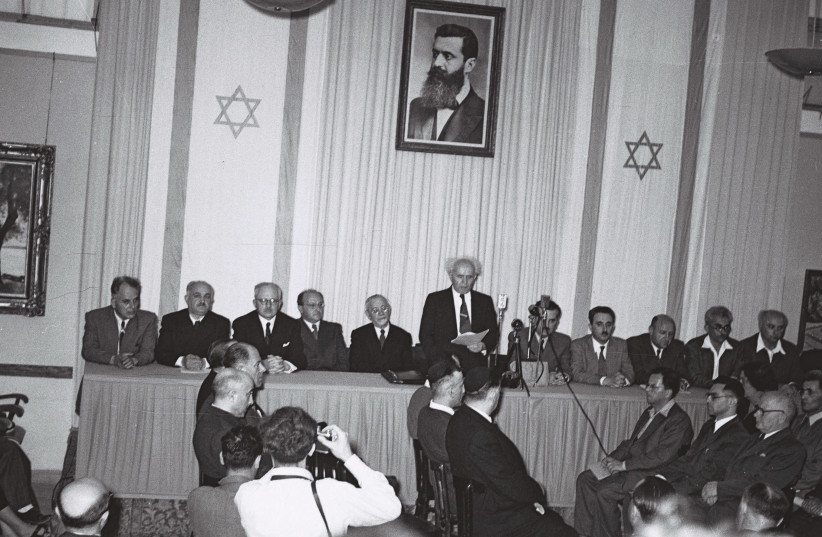The World Zionist Organization's General Council saw dramatic changes to its constitution in Jerusalem on Thursday, with the barring of candidates against Israel's Jewish and democratic nature and a rejection of a motion enshrining the values of Israel's Declaration of Independence.
WZO chairman Yaakoc Hagoel wrote on Facebook that it was the first time that the leaders had assembled since the October 7 massacre.
"Recognizing that the war declared on us is a war against the entire Jewish people, in Israel and in the Diaspora, we all decided to unite and turn this situation from a crisis into an opportunity," wrote Hagoel. "As the leaders of the Jewish people, we will invest together, each in his own field, in the eternity of our people -- in a more unified, more identified and more connected future."
At the session the WZO Council accepted 106 to 51 a Zionist Council of Mexico proposal that introduced a provision "in the spirit" of an ideological exclusionary clause from Israel's quasi-constitutional Basic Law: Knesset.
Like the Basic Law, the WZO constitutional change would bar electoral lists and candidates that would deny Israel as a Jewish and democratic state or support armed violence against Israel by a state or terrorist organization. The amendment would also exclude those in denial of WZO as a Jewish and democratic body, and built upon the Basic Law's provision of racism incitement by adding prohibitions on discrimination by origin, nationality, gender, and sexual orientation.
Values of Declaration of Independence will not be enshrined
Another major proposal would have enshrined the values of Israel's Declaration of Independence and a new Jerusalem program, an official platform of the WZO principles. It failed to achieve a required two thirds majority with 92 votes in favor, 63 against, and two abstentions.
A reliable source in the WZO said the “plenary voted in a secret ballot to defer any changes to the Jerusalem Program at this stage in the name of unity. This is not a time for division between left and right or religious vs secular.”
The proposal was put forward by a wide coalition of factions representing Yesh Atid, Meretz World-Wide, Blue and White, World Labor, World Beytenu, the Conservative Mercaz Olami, Kol Israel, and the Reform Arzenu. The changes were opposed by General Council members from the Likud and ultra-Orthodox faction Eretz HaKodesh.

While the proposal did not pass, with 60% in favor, WZO Vice Chairman Dr. Yizhar Hess, who was in the faction that supported the proposals, claimed that "A strong majority of the leaders of the Zionist Movement made their voices heard loud and clear that Israel and our movement should remain faithful to our founding principles. Democracy. Equality for all – women and men, gay and straight, and Jews of all streams."
Another constitutional issue that arose during the meeting was the role of Shabbat. A World Likud amendment sought to promote "the values of Shabbat for the Jewish people and the State of Israel, according to Jewish heritage and in the public sphere." The proposal was rejected 66-81-1. A companion piece aimed to prevent elections for the Zionist Congress or WZO on shabbat, but this was also rejected, 61-79-8.
Amendments to prevent BDS supporters from being elected were rejected during the session.
The Zionist Organization of America sought to pass a proposal requiring members to follow the laws of the land, in particular to the legality of gender or age quotas in some nations. The article that would have made these quotas non-binding for the organizations in such states was wholly rejected, 44-102-9.
An article by Herut International stating that WZO would encourage IDF and national service was adopted 134-21, but with the condition that a committee be given 14 days to explore legal issues arising for members because of the provision.
This week, delegates will vote online regarding a series of resolutions. Some, like the B’nai B’rith International resolution and ZOA resolution supporting Jewish university students, seek to address the wave of antisemitism on campuses that has spawned in the wake of October 7. Other resolution topics include combating antisemitism worldwide, improving Israel diaspora relations, support for aliyah, and condemnation of bodies antagonistic to Israel.
This is a developing story.
